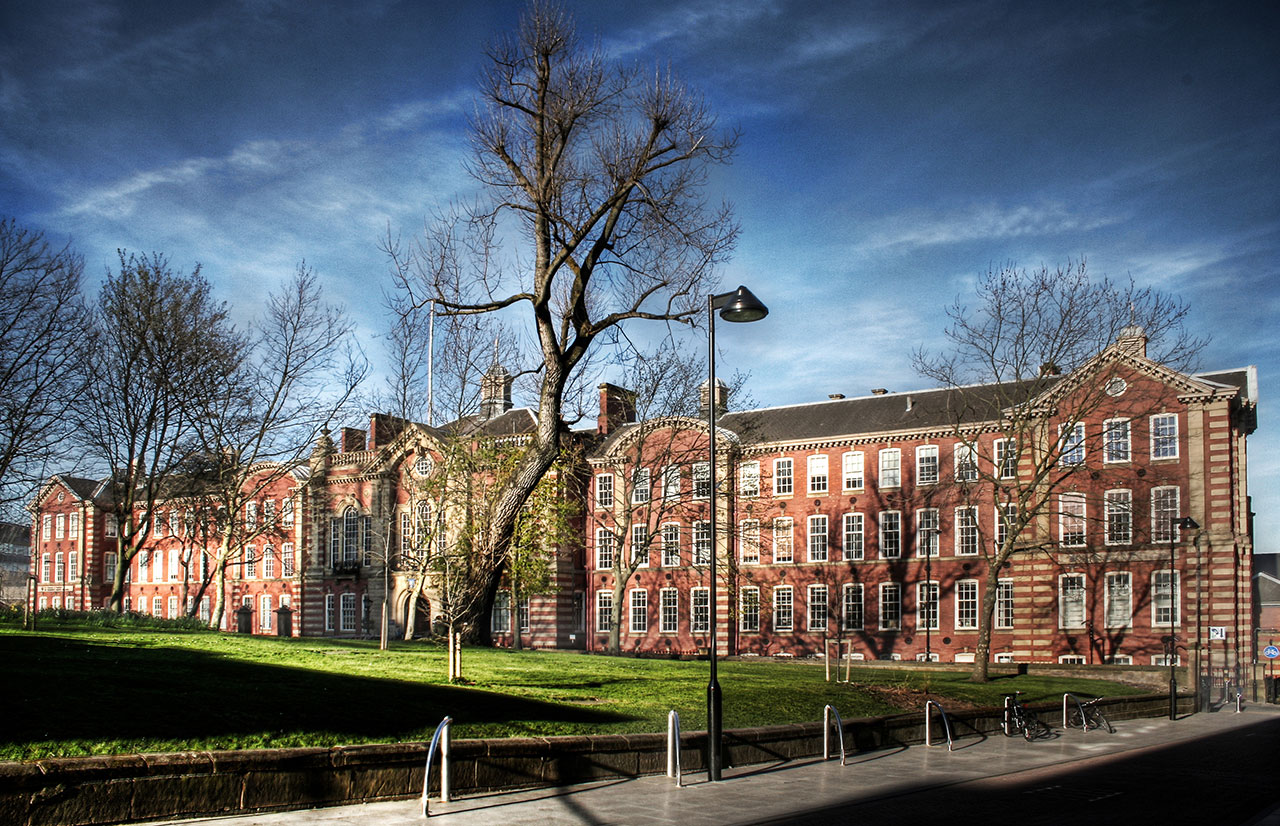HISTORY:
The University of Sheffield is a research university. The University of Sheffield was formed by the merger of three colleges. In 1828 the Sheffield School of Medicine was founded. In 1879 the Firth College, to teach arts and science subject and the Sheffield Technical School which opened in 1884. The Sheffield Technical School was the product of local concern about the need for better technical training of the men responsible for running the great industries of Sheffield, particularly steelmaking.
These three institutions merged in 1897 as the University College of Sheffield. In 1905 the University College received its Royal Charter and became the University of Sheffield.
LOCATION:
Most University buildings are within walking distance from each other and the campus is a very short walk from the city centre. The two out-of-town accommodation locations are both 20-25 minutes walk from the city and academic buildings along major thoroughfares and there is a frequent bus service.
The University of Sheffield has a 24/7 Security Services team and there is a Campus Police Officer with particular responsibility for the welfare and safety of students.
RANKING:
University of Sheffield is ranked 117th in the Times Higher Education rankings, it is ranked between 101-150th in the Shanghai Jiao Tong rankings. Sheffield university is a member of the Russell Group of universities.
University of Sheffield is ranked 14th in the National Student Survey Satisfaction rankings (2019)
INTERNATIONAL:
Sheffield has more than 8,500 international students from over 154 countries, representing about 28% of all students.
Pathway entry for international students - there are 2 organisations offering routes into degree course entry at Sheffield.
For more information, please visit Pathway & Foundation page.
SIZE:
Sheffield has approximately 30,000 students. 19,000 are undergraduates and 11,000 are postgraduates.
EMPLOYMENT:
95.1% of Sheffield university graduates enter directly into work, further study or training within 6 months of graduation (source:HESA). A breakdown of post graduation employment by course, showing the split into professional/managerial positions, rather than general employment figures, is available from Unistats an independent source of university data. For more information, please visit the REF Information page.
FACILITIES:
The University of Sheffield has more than 250 societies and clubs; these include economics, dance, music, faith groups and sports.
The sports facilities have recently been upgraded. There is a high-tech gym, a 33-metre swimming pool, 45 acres of outdoor pitches, tennis, climbing wall, squash and badminton courts.
ACCOMMODATION:
Sheffield has three accommodation locations - Endcliffe, Ranmoor and City - offering a range of room types for undergraduate and postgraduate students.
The lowest price for a single room with shared bathroom and kitchen facilities is £104 per week.
Catered accommodation is not available at Sheffield University.
COST:
International
International undergraduate tuition fees:
Fees for full time undergraduate courses start at £20,000 for Arts & Humanities subjects such as History, rising to £25,670 for Laboratory subjects such as Biomedical sciences, as well as other Science and Engineering degrees. Medicine - £38,050
SUBJECT AREAS:
REF (Research Excellence Framework) was an independent government review conducted into the quality of research at UK universities and published in December 2014. This information highlights subjects of specialism within each university. We have listed all subject areas where at least 60% of the research conducted in these specific fields has been graded 3 or 4 stars. (4 stars being the highest ranking REF award). For more information, please visit the REF Information page.
ONLINE COURSES:
The University of Sheffield offers distance learning options across more than 30 courses at Certificate, Diploma, PGCE, and Masters level. Subjects include English Studies, Statistics, Public Health and World Music Studies.







 LOOKING FOR AN ONLINE COURSE?
Our team can help you find a relevant course for your study.
BOOK A CALL
LOOKING FOR AN ONLINE COURSE?
Our team can help you find a relevant course for your study.
BOOK A CALL